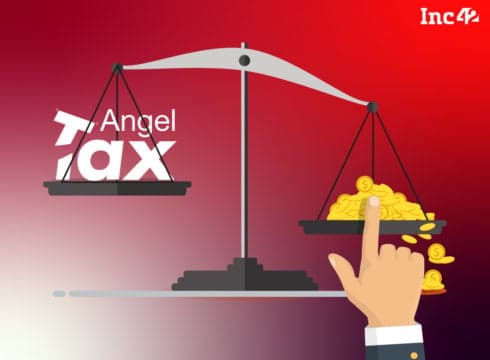A total of 381 startups applied for tax exemption since February
The government had added the angel tax under Section 56(2)(viib) of the I-T Act
150 startups applied for angel tax exemption last month
Inc42 Daily Brief
Stay Ahead With Daily News & Analysis on India’s Tech & Startup Economy
Taking concrete steps towards building a startup ecosystem, the government has exempted 342 startups from paying angel tax since February, an official told PTI.
A government official was quoted as saying, “The ministry is taking all steps to promote and strengthen the start-up ecosystem in the country. A total of 381 startups gave undertaking that they should be exempted from angel tax and out of that, 342 have received intimation from CBDT (Central Board of Direct Taxes).”
Angel tax is a nickname given to the tax for startups under Section 56(2)(viib) of the I-T Act which states that the amount raised by a startup in excess of its fair market value would be deemed as income from other sources and would be taxed at 30%. It is called angel tax because the clause primarily impacts angel investors and startups raising angel investments.
Giving a breather to startups, the government in February this year had issued a notification making the definition of startups more inclusive.
By March, 150 startups had applied for exemption from angel tax. Out of these, 120 startups had received acknowledgement for exemption from angel tax.
Earlier a startup was defined as an entity incorporated not more than seven years old and having a turnover less than INR 25 Cr for any financial year. This definition was broadened to include companies which are incorporated in the last 10 years and have had a turnover of INR 100 Cr in any of the previous years.
The same notification allowed tax exemption of upto 25 Cr, the PIB press release for the notification said, “The aggregate limit of INR 25 Cr will exclude consideration received by eligible startup.”
Despite the effort, a few pain points remained for the startups, one of which was that startups which received the tax notice before the February 2019 order still had to fight the battle. Besides this, the certification process for the tax exemption under Section 80-IAC has been left unaddressed.
Another major change brought about by the February notification is that it downsized the committee which takes a call on a startup’s eligibility to avail tax relief. The eight-member inter-ministerial board was reduced to a three-member committee by February.
Although a significantly higher number of startups are availing tax exemption after the February notification, the government still needs to address the pending issues in availing the angel tax issue as soon as possible, if it wants to foster a thriving startup ecosystem in the country.
{{#name}}{{name}}{{/name}}{{^name}}-{{/name}}
{{#description}}{{description}}...{{/description}}{{^description}}-{{/description}}
Note: We at Inc42 take our ethics very seriously. More information about it can be found here.


